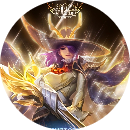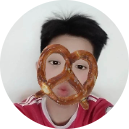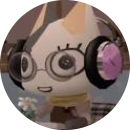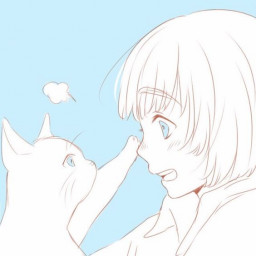XIII. Choose the best answer to complete the following passage.
Public transport in Hong Kong(1) …………very good and cheap. The cheapest kind of (2)
…………..is the tram because you can travel a long way on it but don’t have to (3) ………
much money.
In Hong Kong (4) ……………….are two types of buses for people to travel on: the parge double-decker buses (5) ……….the smaller minibuses. Both (6) ……….convenient because you can stop one minibus to get on or (7) …………………anywhere you like. If you take the large buses, you (8) ……………only get on or get off at certain bus stops. In Hong Kong, the underground train is one of (9) ………………most popular kinds of transport, and its name is MTR. It is very clean and fast, but it is (10) …………..expensive than the bus. Taxis (11) …………..Hong Kong are not (12) …………..expensive as in Europe or America, and there are lots of them available anywhere and anytime, in the morning or (13) …………..night. In Hong Kong, not many people ride bicycles because the roads (14) …….
always very busy. Most people take public transport or (15) …………their own cars.
1. A. is B. are C. were D. am
2. A. road B. transport C. way D. movement
3. A. pay B. give C. take D. paid
4. A. it B. they C. this D. there
5. A. but B. either C. and D. with
6. A. of B. and C. neither D. off
7. A. and B. into C. off D. out
8. A. have B. could C. would D. will
9. A. the B. a C. this D. that
10. A. as B. a lot C. much D. more
11. A. in B. on C. at D. into
12. A. more B. as C. less D. the
13. A. on B. at C. in D. by
14. A. is B. am C. be D. are
15. A. use B. bring C. borrow D. give
XIV. Chọn đáp án thích hợp nhất từ những từ/ cụm từ gợi ý
1. The word/ difficult/ we/ can’t/ spell it/.
A. The word is too difficult that we can’t spell it.
B. The word is so difficult that we can’t spell it.
C. The word is such difficult that we can’t spell it.
D. The word is so difficult, we can’t spell it.
2. Have/ you/ been/ Australia/?
A. Have to ever been to Australia?
B. Have you yet been to Australia?
C. Have you ever been to Australia?
D. Have you never been to Australia?
3. How/ you/ start/ the day/ Jim/?
A. How does you start the day, Jim?
B. How do you start the day, Jim?
C. How you start the day, Jim?
D. How does you starts the day, Jim?
4. Computer/ one of/ important/ invention/ human/.
A. Computer is one of the most important inventions of human.
B. Computer is one of the more important invention of human.
C. Computer is one of the most important invention human.
D. Computer is one of the most important than inventions human.
5. Exercising/ regularly/ good/ you/.
A. Exercising regularly to be good for you.
B. Exercising regularly is good for you.
C. Exercising regularly is good with you.
D. Exercising regularly is good enough to you.
XV. Kết hợp động từ “used to” hoặc “didn’t use to” để viết thành câu hoàn chỉnh.
1. He/ drink/ coffee/ now/ tea/.
…………………………………………………………………………………………..
2. Peter/ play/ violin/ now/ guitar/.
………………………………………………………………………………………….
3. Jill/ live/ England/ now/ Spain/.
………………………………………………………………………………………….
4. I/ not/ watch video/ much/ now/ a little/.
………………………………………………………………………………………….
5. Paul/ not/ smoke/ a pie/.
………………………………………………………………………………………….
6. My father/ smoke/ a packet/ cigarettes/ a day/.
…………………………………………………………………………………………
7. Your parents/ read/ to you/?
………………………………………………………………………………………….
8. She/ not/ drink/ bottled water/.
………………………………………………………………………………………….
9. He/ study/ hard/ when/ he/ a child/.
………………………………………………………………………………………….
10. We/ walk/ the park/ the afternoon/.
………………………………………………………………………………………….
11. I/ swim/ before work/ now/ after work/.
………………………………………………………………………………………….
12. I/ buy cassettes/ now/ CDs/.
………………………………………………………………………………………….
13. John/ cycle/ school/ now/ not/.
…………………………………………………………………………………………..
14. Mary/ eat/ fresh fruit/ now/ tinned fruit/.
…………………………………………………………………………………………..
15. He/ watch TV much/ now/ read/ newspapers/.
…………………………………………………………………………………































